The Rise and Fall of DreamWorks Animation, Part 1: Rise
 Thursday, March 19, 2015 at 10:31PM
Thursday, March 19, 2015 at 10:31PM 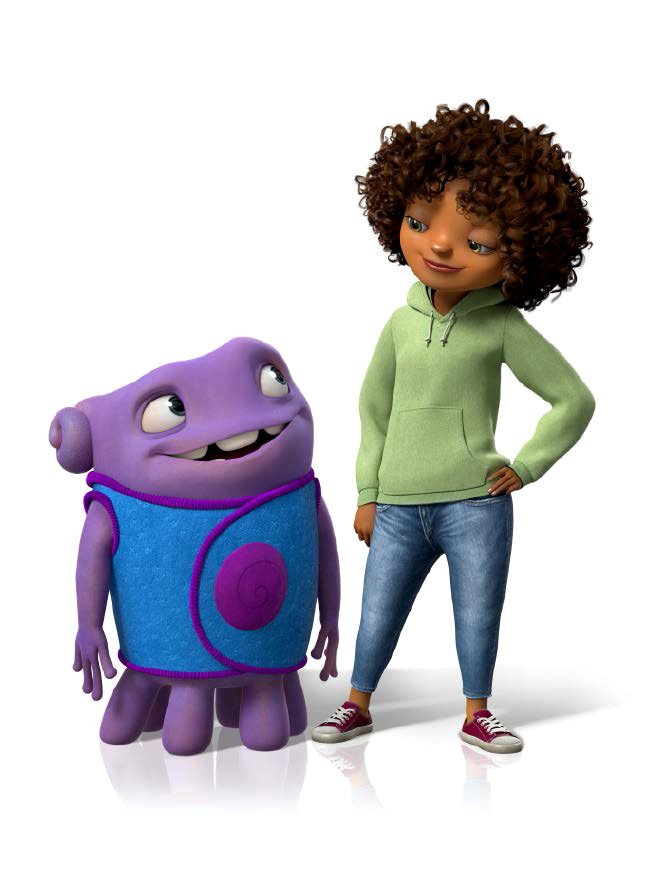 Tim here. It's not often that we come upon a movie which could be even semi-plausibly described as holding the fate of a studio in its hands, but next week we'll have just such a release, as DreamWorks Animation release its 28th feature (31 if you count their collaborations with Aardman), the sci-fi comedy Home. This comes at a perilous time for Dreamworks: after two and a half years of underperformers and outright flops, the company has been forced to slash its staff, write-off costly upcoming projects, and shutter the PDI DreamWorks studio, one of its main production hubs.
Tim here. It's not often that we come upon a movie which could be even semi-plausibly described as holding the fate of a studio in its hands, but next week we'll have just such a release, as DreamWorks Animation release its 28th feature (31 if you count their collaborations with Aardman), the sci-fi comedy Home. This comes at a perilous time for Dreamworks: after two and a half years of underperformers and outright flops, the company has been forced to slash its staff, write-off costly upcoming projects, and shutter the PDI DreamWorks studio, one of its main production hubs.
What brings a formerly prosperous studio, the biggest name in animation for a little while, just a decade ago, to such a precarious state? This week and next, we're going to try to answer that question with a little history of DreamWorks Animation, its greatest successes and its most sobering failures.
The company began when Steven Spielberg, newly-ousted Disney executive Jeffrey Katzenberg, and David Geffen joined forces in 1994 to form DreamWorks SKG, an ambitious attempt to create a major movie studio right out of the gate. Katzenberg had been instrumental in overseeing the Disney Renaissance, which had just seen its biggest success in the form of The Lion King, and with animation riding high at the box office, it made sense for this new Hollywood megaforce to have a cartoon studio all its own. With Spielberg's Amblimation and the newly-acquired PDI forming the spine of DreamWorks's 2-D and CGI animation divisions, respectively, the company immediately threw itself into competing directly with Disney.
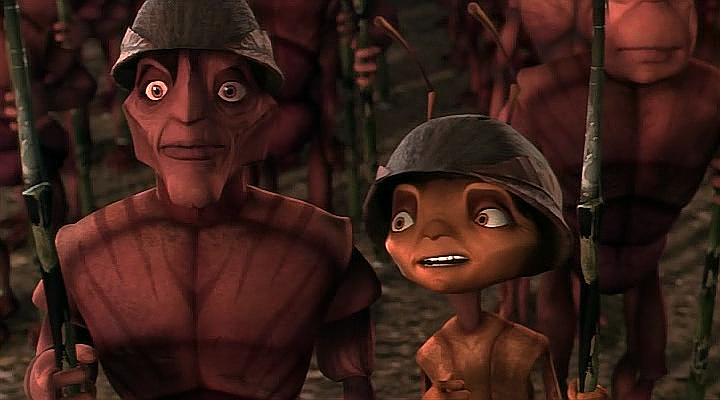
Directly with Disney.
The very first DWA production to be released was the CGI film Antz, rushed through production to compete head-to-head with the Disney-distributed Pixar film A Bug's Life (a longstanding rumor holds that Katzenberg had heard the Bug's Life pitch as one of his last official acts as Disney executive). And the second was The Prince of Egypt, an ambitious Broadway-style musical recounting one of the great traditional stories, the life of Moses. Neither film was a runaway blockbuster – by the time they were released in the autumn of 1998, the market for animated features had softened somewhat – but they both turned a profit and met with critical approval, and immediately proved that, for the first time since Spielberg had tried to nurture ex-Disney director Don Bluth to prominence in the mid-'80s, Disney had a real competitor.
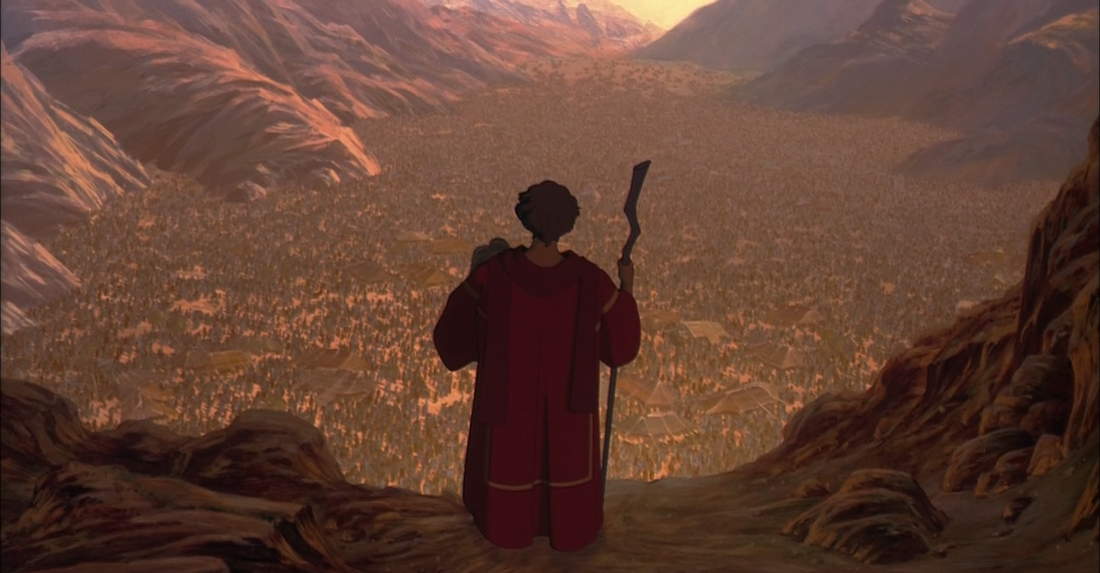
For the first handful of years of its existence, DWA offered up a diverse slate of titles that nevertheless hewed to a basic pattern: their 2-D films were generally old-fashioned adventure tales on the classic animated model (they never again made a musical, though), and they didn't really make much money: 2000's The Road to El Dorado and 2003's Sinbad: Legend of the Seven Seas remain the two lowest-grossing films in the studio's history, even adjusted for inflation. Their collaborations with Aardman, which began with 2000's Chicken Run, were genial, goofy comedies. And their CGI films... those were outright juggernauts.
The second PDI/DreamWorks CGI feature came out in 2001: Shrek. It was a massive hit, by animation standards, and more than doubled the take of any individual DWA production before it. Superficially, it copied the basic idea behind Antz: rely on anachronistic humor and modern attitude, and build itself around an A-list celebrity cast. But whereas Antz merely tried to knock the wind out of Pixar, Shrek strode right up to Katzenberg's old bosses and took Disney on directly. The film is a parody of that company's wholesome veneer, gleefully mocking its theme parks and reliance on fairy tale morality, and people loved it. It was the third highest-grossing film of 2001, and won the very first Academy Award for Best Animated Feature, beating out Pixar's Monsters, Inc. (and Nickelodeon's Jimmy Neutron: Boy Genius, which absolutely nobody cares about).
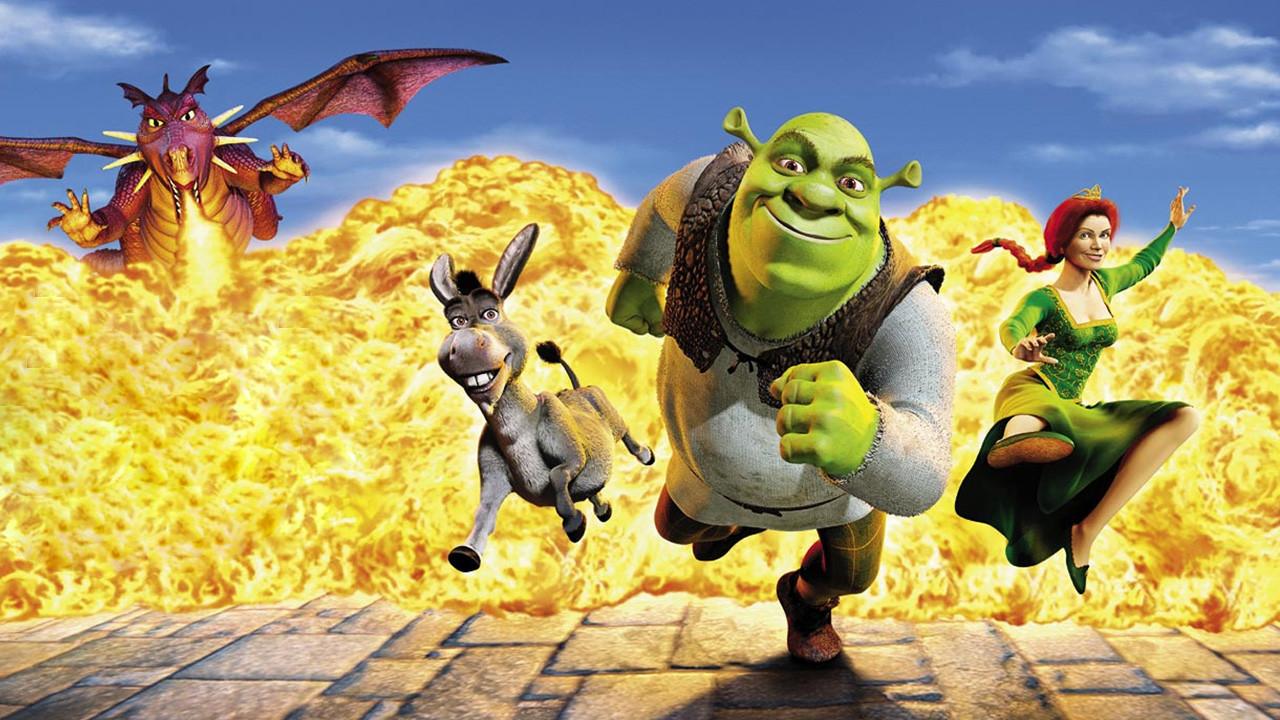
It also completely re-defined the marketplace for animation in the United States. CGI, once the exclusive province of Pixar, had overnight positioned itself as the medium for theatrical animation, and Disney's traditional features began to seem utterly quaint. As indeed did DreamWorks's: 2002's Spirit: Stallion of the Cimarron and Sinbad were slid into theaters with limited fanfare and poor box office (though the former wrangled an Oscar nod), while the studio set itself to making a Shrek sequel and using that basic formula for its other new productions. Within a year, DreamWorks was no longer a Disney imitator: now it had imitators of its own, like Blue Sky and its new Ice Age.
The company reached its height in 2004. In the summer of that year, they released Shrek 2, an absolute monster at the box office. It remains the highest-grossing animated film in the U.S., and has only been passed worldwide five times – two of those, The Lion King and Finding Nemo, only thanks to re-releases. Coming out just months after Disney gave up the ghost and closed their traditional animated division, it represents the single film with which computer animation declared its victory, and it cemented "computer animation" as a genre, rather than a medium – one in which slumming celebrities would toss out sitcom quips and have dance parties. This was the exact model that DWA's other 2004 release, Shark Tale, would follow, and while it was hardly as big a hit, commercially or critically, the studio's prominence was enough that both of their releases were Oscar nominees in a year where Best Animated Feature only had room for three nominees total (the third, Pixar's The Incredibles, won the award).
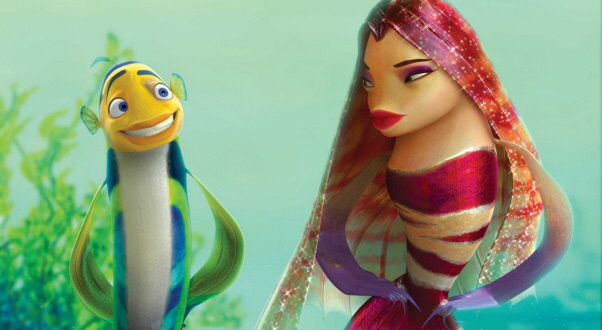
The success of 2004 was enough to justify separating DreamWorks Animation from the increasingly sluggish DreamWorks SKG, and they have been independent companies since October of that year.
The next several years were an almost uninterrupted series of triumphs. 2005 saw the birth of DreamWorks's second franchise, with Madagascar; 2007's Shrek the Third netted the studio its second film to break $300 million in the U.S. and third to pass $500 million worldwide. It was broadly disliked; but with that kind of money, the studio could hardly be expected to care. Other films were merely hits, not smashes: the nicest thing we could say for 2006's Over the Hedge is that it didn't embarrass the studio, and even that's a bit generous for 2007's odd, Jerry Seinfeld-led imbroglio Bee Movie.
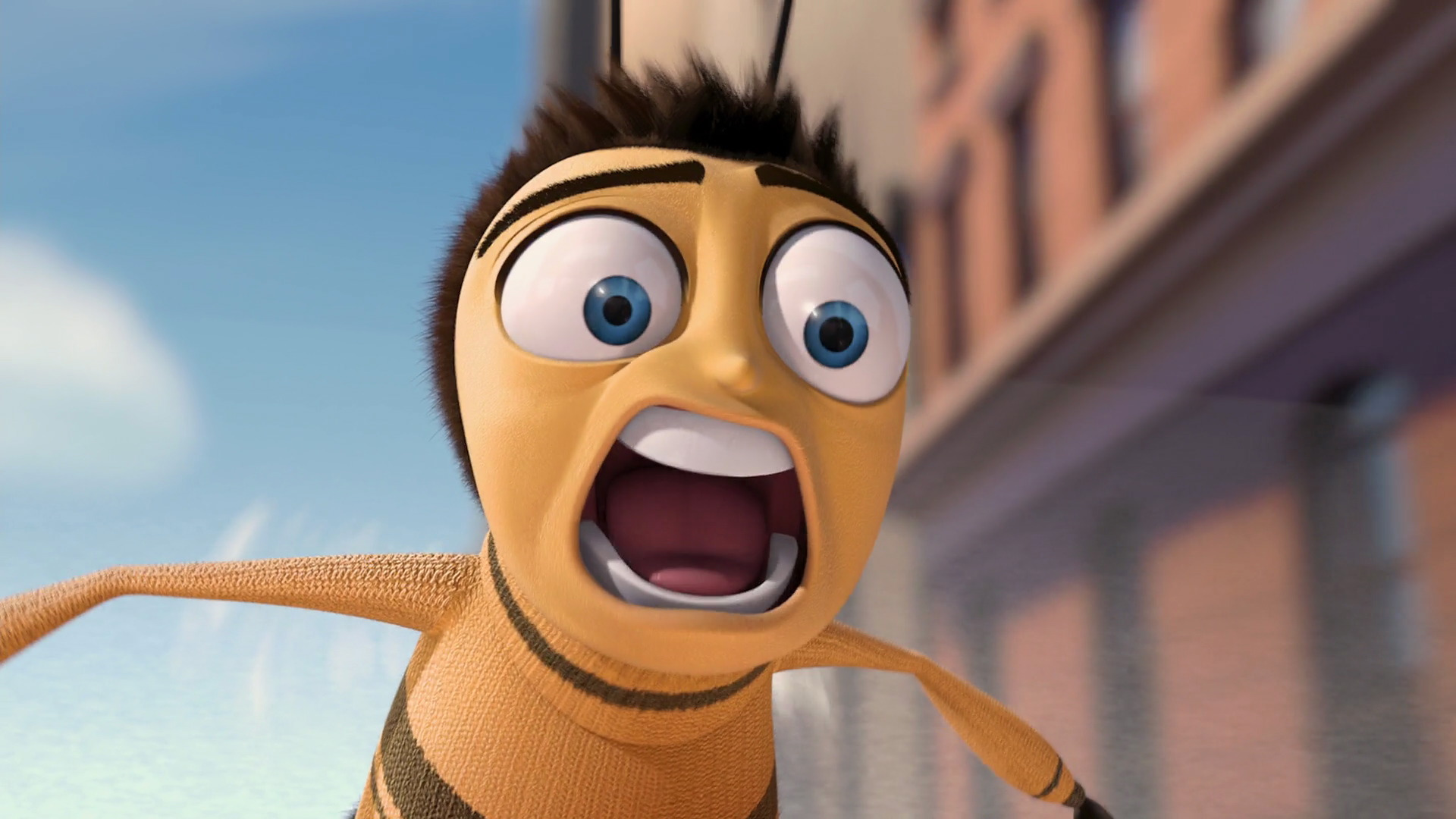
Meanwhile, the sharp underperformance of the second and third Aardman features distributed by DreamWorks, Wallace & Gromit in The Curse of the Were-Rabbit and Flushed Away (the latter made in CGI, allegedly at Katzenberg's insistence) led to a premature dissolution of their partnership.
But 2008 quickly wiped away any hint of problems: that summer's Kung Fu Panda managed to launch a third franchise while winning the studio its best reviews since Shrek 2, and re-legitimizing their story model – it's basically nothing but "Jack Black is himself, but as a panda" – while the fall's Madagascar: Escape 2 Africa outperformed the original worldwide.
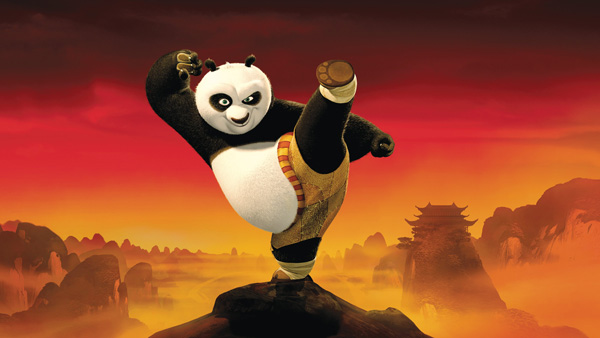
After five straight years of releasing two films a year, 2009 was a bit light: only one DreamWorks film came out, and in the off-blockbuster spring season, at that. But Monsters vs. Aliens was a hit anyway, just barely failing to become the studio's fifth $200 million in the States, mostly on the strength of what Katzenberg had promised would be its exciting, groundbreaking use of 3-D, back when that technology was still exciting and new (Avatar came out nine months later). And that light slate was merely foreshadowing the unprecedented achievement DreamWorks would have in the following year, where they proved their dominance over the animation marketplace like never before, and managed to seal their doom in the process.
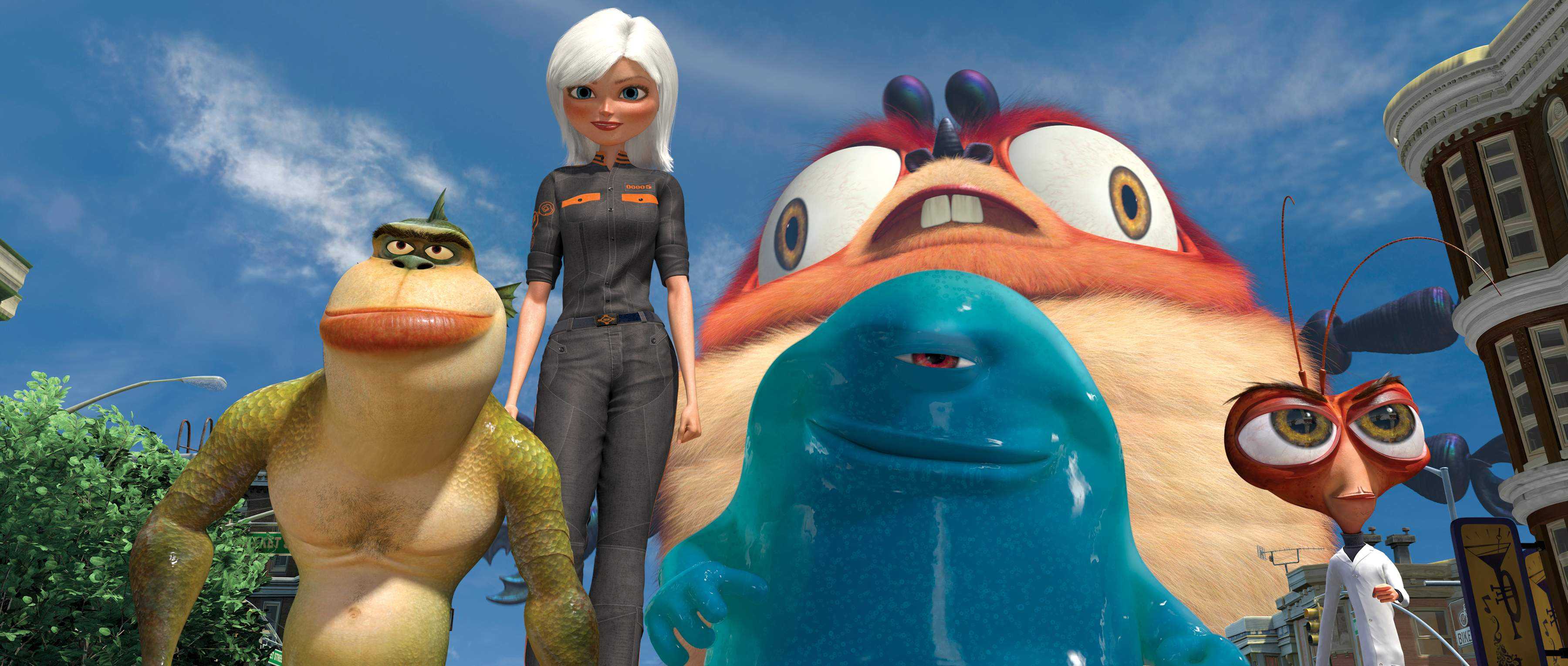
continue to Part 2: The Fall...



Reader Comments (22)
so when Home bombs, they can say "yeah, that movie with the black girl killed Dreamworks, think we can all learn a lesson from this"
I would dearly love to say we don't live in that world, but... we do. So yeah, you're 100% right.
I don't think the "little black girl" is going to be the issue. It's the unfunny script and the purple blob of snot that will sink it. Highly uninteresting promo ads.
HOME is from the director of ANTZ, right?
I've never been much of a fan of Dreamworks animation for some reason. I resist them even when they're doing stuff like KUNG-FU PANDA, which most people like.
Honestly, I never pay much attention to the studios of animated films (except Disney and Pixar because they're so notorious you can't ignore their names), but I'm realizing how much interest I never had in Dreamworks movies. I love Antz and Prince of Egypt, but those are from my childhood so nostalgia could have a lot to do with it. Shrek is fun. But other than that... no thanks.
And Bee Movie is legitimately the worst movie ever... a woman leaves her husband for a bee?! I'm sorry. I know it's animated, but stop.
Dreamworks's strategies are are the ones that I just didn't care for, sequel after sequel and their films tried so hard to be safe, rather than ground-breaking; thus eventually become forgettable.
Your first part is very informative and interesting to read. However I think you forgot to mention the glorious Anastacia (or is it not Dreamworks?), which technically one of the most beautiful hand-drawn studio animation.
I did think their downfall was just a matter of time; but I am still sad to see how the studio suffers now...
I love retrospectives like these! I just hope I don't have to wait too long for the next one.
I honestly vastly prefer Antz to A Bug's Life. The ants having 4 legs in the latter really, really bugged me (no pun intended). Plus Antz has such a weird, hodge-podge cast that it almost kind of works.
I am now realizing that Prince of Egypt and the Kung Fu Panda movies are the only Dreamworks films that I've liked, and that the Ice Age movies are FOX and not Dreamworks, which is a lot more trivia than I usually get on a Friday morning, so I'm stoked for part two of this article!
I realized that the only Dreamworks films I really liked were Aardman Studios films. "Chicken Run" and "Curse of the Were-Rabbit" are absolute classics.
Shrek (first 2 only) was fun, and Kung Fu Panda made me laugh but ...
They always seem to be so mainstream I never really have a fix on a unique style.
tombeet: Anastasia was Don Bluth at Fox.
Gradings of the Dreamworks catalogue:
Antz: B
Shrek: B
Shrek 2: B
Shark Tale: D
Madagascar: B-
Over the Hedge: B
Shrek the Third: B-
Bee Movie: D- (Ewwwwwwww! Easily the worst movie Dreamworks made. It's the Dreamworks equivalent of Sonic 06, right down to the bestial romance.)
Kung Fu Panda: B+
Madagascar 2: B
Monsters vs. Aliens: C+
How to Train Your Dragon: A-
Shrek Forever After: C
Megamind: C+ (Ultimately misses the mark as genre parody, shying away from the stuff the mainstream could look at as goofy or distasteful.)
Kung Fu Panda 2: B
Puss in Boots: B-
Madagascar 3: B
Rise of the Guardians: Unseen. Dreamworks fatigue.
The Croods: Probably C+.
Turbo: C+ (Third draft syndrome. The final draft leaves clues what the original hook and concept likely was (Turbo's superspeed probably, originally, came from his energy drink and the movie, then, would be a satirization of caffeine and energy drink addicts), but what's left was toothless inspirational fare.)
Mr. Peabody and Sherman: B
How to Train Your Dragon 2: B+
Penguins of Madagascar: Why wouldn't I just watch the TV version? It's free and snappier due to not having to fill 90 minutes.
Home: Ugh. We're already bordering on being sick of Jim Parsons on TV, let alone with a Dreamworks script.
Such an interesting article! Nice cliffhanger too - I'm looking forward to part two.
I think Dreamwork's crime, as others have said above, is in committing to entertainment that is safe and unoffensive ...and ultimately unremarkable. With the possible exception of Shrek and HTTYD, so many of their movies feel impossibly reductive and instantly forgettable. My interest in HOME is basically limited to the few new Rihanna songs on the soundtrack.
I still remember seeing Shrek in theatres in 2001. It was an incredible breath of fresh air, one that the studio sought to turn stale and repetitive as quickly as it could through repetition over the subsequent decade.
I never realized how much crap DreamWorks was responsible for....
Oh, the Aardman movies are excellent (well, Flushed Away is only okay), but I don't really consider them Dreamworks.
I've seen ONE Dreamworks animation film, and that was Chicken Run. No, I've never seen The Lion King or any of the Shrecks.
love this. great cliffhanger as others have said. I'm reliving the whole history in my head and cursing them all over again (hated Shrek even then!).
and thinking about Shrek and why people liked it and how badly it aged I am suddenly like "oh my god. Guardians of the Galaxy is the Shrek of Marvel, the big hit everyone loves that will age poorly and will lead to lots of terrible imitations
I'm not an animation fan so I've only seen a few, but Chicken Run is one of my favorite movies. "But I don't want to be a pie." has become a catch phrase for me. I admit I only saw the film because of the reviews, Julia Sawalha and Jane Horrocks (and a night with nothing else to do).
Love this! Nobody does this stuff better.
I really, really, really hate Shrek, maybe the film which has hurted the most the animation film art.
So relieved that y'all liked this! I was a little worried it would be a bit on the wonky side. I mean, I don't even like more than maybe three of the movies I've mentioned up to this point, but the role of DreamWorks in the animation marketplace is one of my favorite animation-geek topics. They've influenced such a huge range of their competition - even Disney had a couple of years copying them (Chicken Little, I hate you so much) - and yet they have so little actual storytelling talent and nothing outside of the first two Shreks, the Pandas, and the Dragons that anybody really likes much at all. I don't understand the why of it at all, but the what fascinates me.
And Glenn, Home is indeed from one of the directors of Antz.
Good piece on movies that I simply can't stand. Generally love the programs of Oscar-nominated animated shorts but these full-length celebrity voiced extravaganzas leave me cold.
The studio should have stuck with existing themes and written better stories to follow up. Just think of the long string of successful James Bond movies...why not do the same with Madagascar and Shrek? If they are going to start something new, it should have the capacity to generate many sequels. That is why superhero comics lasted so long...they kept the story line going, for years. I've always wondered why the Oz books weren't made into films...